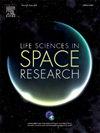深空任务航天员健康监测技术进展综述
IF 2.8
3区 生物学
Q2 ASTRONOMY & ASTROPHYSICS
引用次数: 0
摘要
对宇航员进行健康监测对于确保长期太空任务期间机组人员的安全和健康至关重要。本文概述了为监测空间各种生理参数而开发的技术,重点介绍了空间环境带来的挑战,包括微重力、辐射和隔离。本文回顾了可穿戴健康监测系统的发展,分析了传感器技术、人工智能驱动诊断和数据传输方面的关键进展。它评估了过去和现在的系统,强调了诸如提高传感器精度、小型化以增强可穿戴性以及从依赖地球的监测向自主、人工智能支持的健康评估的转变等趋势。尽管取得了这些进步,但仍然存在挑战,包括传感器复杂性、数据处理限制和系统寿命。在此基础上,提出了优化深空航天员健康监测的下一代健康监测系统框架。该系统集成了最小但具有战略意义的生理传感器、机器学习驱动的预测诊断、高效数据压缩和自适应传感。该审查旨在深入了解现有技术的优势和差距,同时为未来的太空任务提出潜在的进步建议。本文章由计算机程序翻译,如有差异,请以英文原文为准。
Advancements in health monitoring technologies for astronauts in deep space missions: A Review
Health monitoring for astronauts is critical to ensure the safety and well-being of crew members during long-duration space missions. This paper presents an overview of the technologies developed to monitor various physiological parameters in space, focusing on the challenges posed by the space environment, including microgravity, radiation, and isolation. The paper reviews the evolution of wearable health monitoring systems and analyzes key advancements in sensor technology, AI-driven diagnostics, and data transmission. It evaluates past and present systems, highlighting trends such as improved sensor accuracy, miniaturization for enhanced wearability, and the shift from Earth-dependent monitoring to autonomous, AI-supported health assessments. Despite these advancements, challenges remain, including sensor complexity, data processing limitations, and system longevity. Based on this evaluation, the paper proposes a framework for a next-generation health monitoring system to optimize astronaut health monitoring in deep space. This system integrates minimal yet strategic physiological sensors, machine learning-driven predictive diagnostics, efficient data compression, and adaptive sensing. This review aims to provide insights into the strengths and gaps of existing technologies while suggesting potential advancements for future space missions.
求助全文
通过发布文献求助,成功后即可免费获取论文全文。
去求助
来源期刊

Life Sciences in Space Research
Agricultural and Biological Sciences-Agricultural and Biological Sciences (miscellaneous)
CiteScore
5.30
自引率
8.00%
发文量
69
期刊介绍:
Life Sciences in Space Research publishes high quality original research and review articles in areas previously covered by the Life Sciences section of COSPAR''s other society journal Advances in Space Research.
Life Sciences in Space Research features an editorial team of top scientists in the space radiation field and guarantees a fast turnaround time from submission to editorial decision.
 求助内容:
求助内容: 应助结果提醒方式:
应助结果提醒方式:


